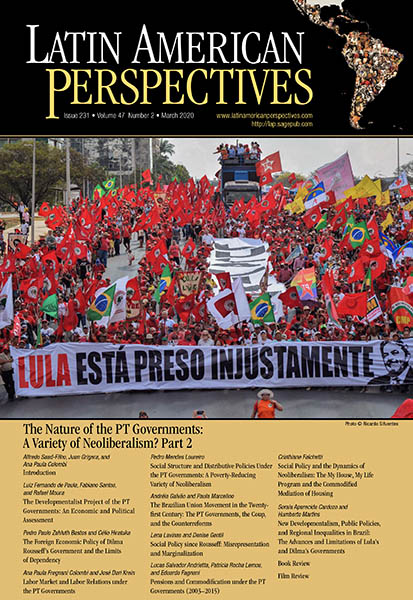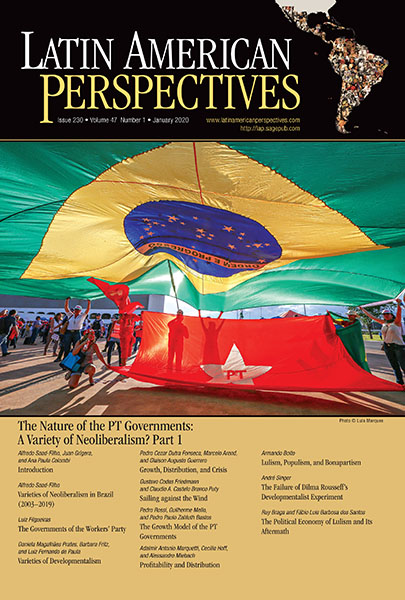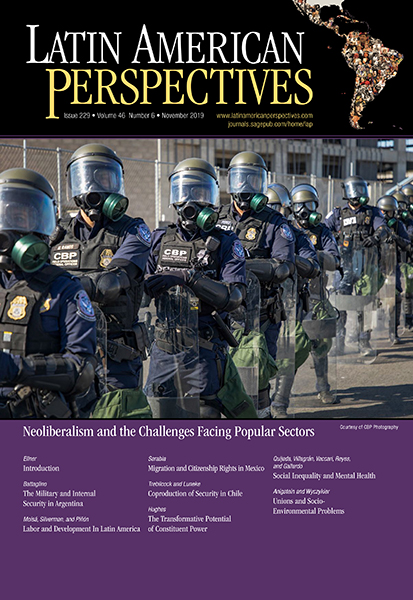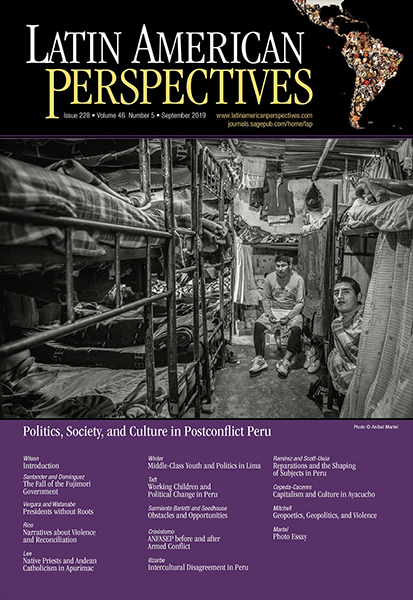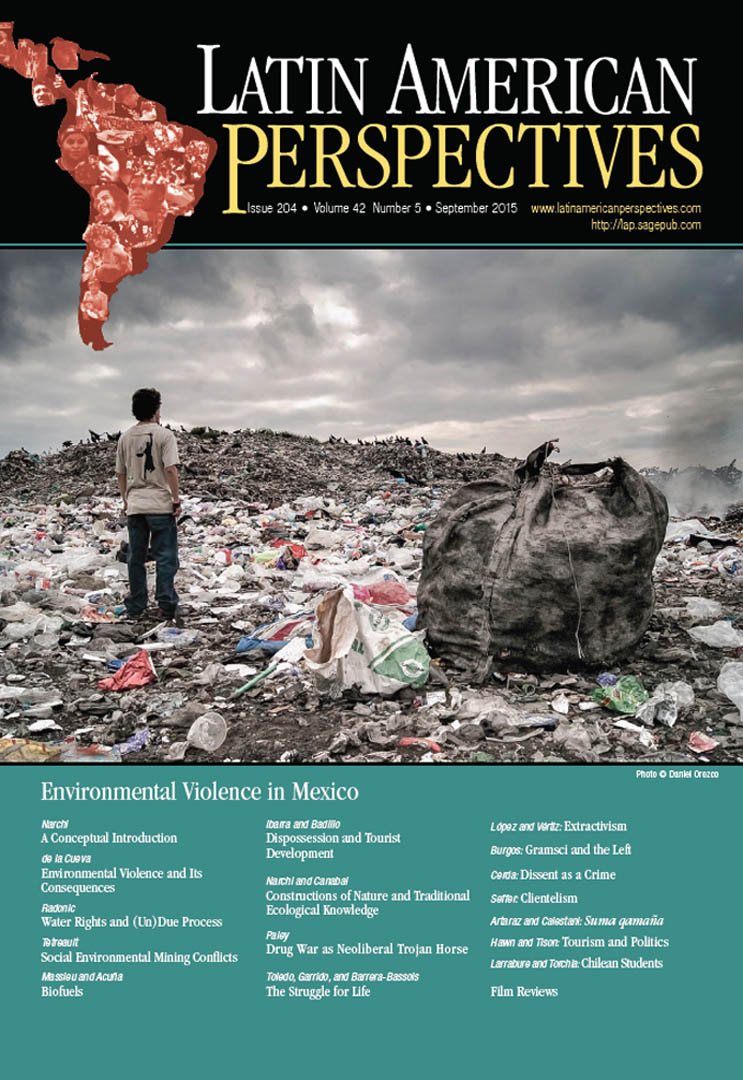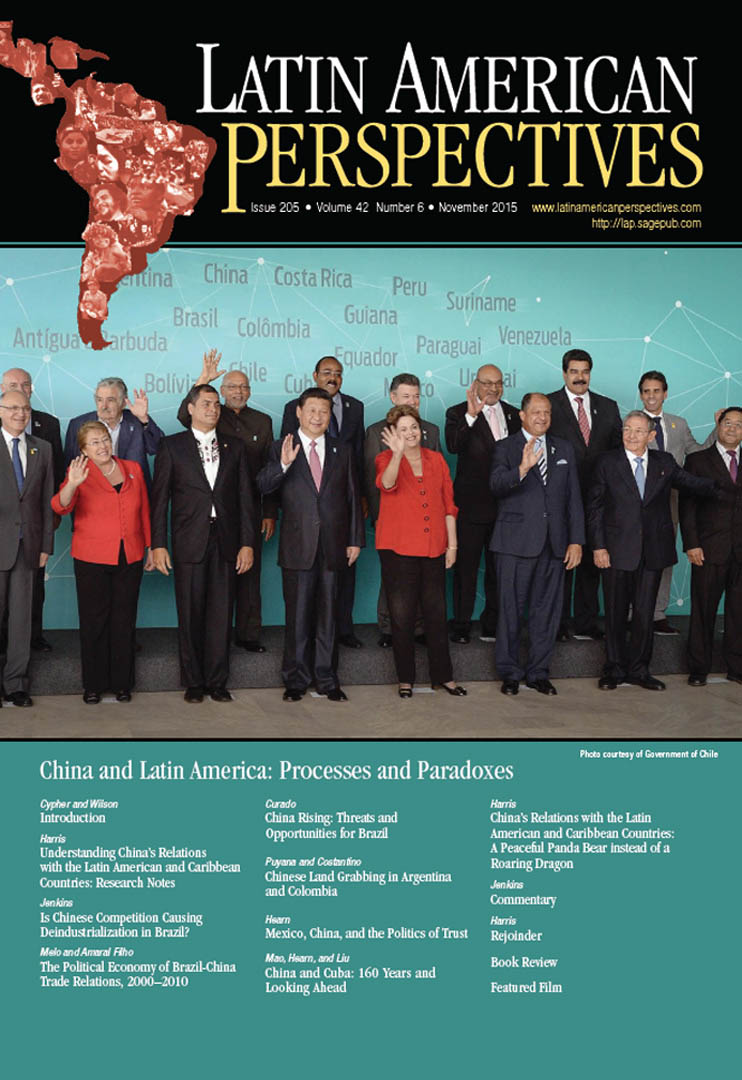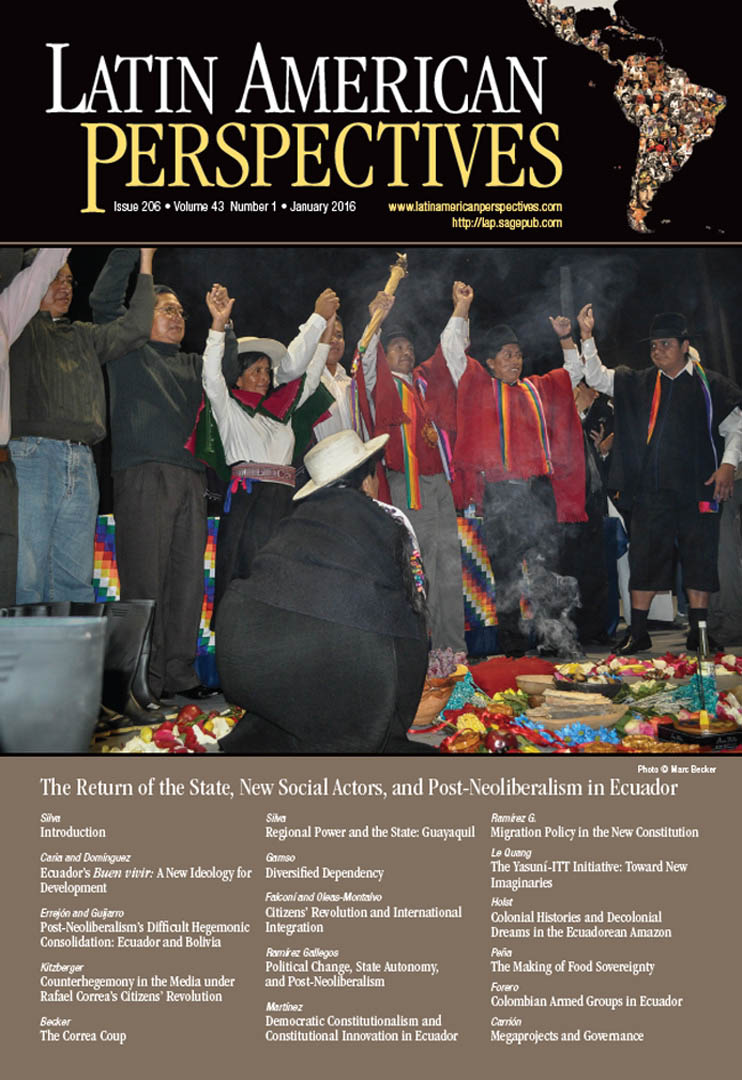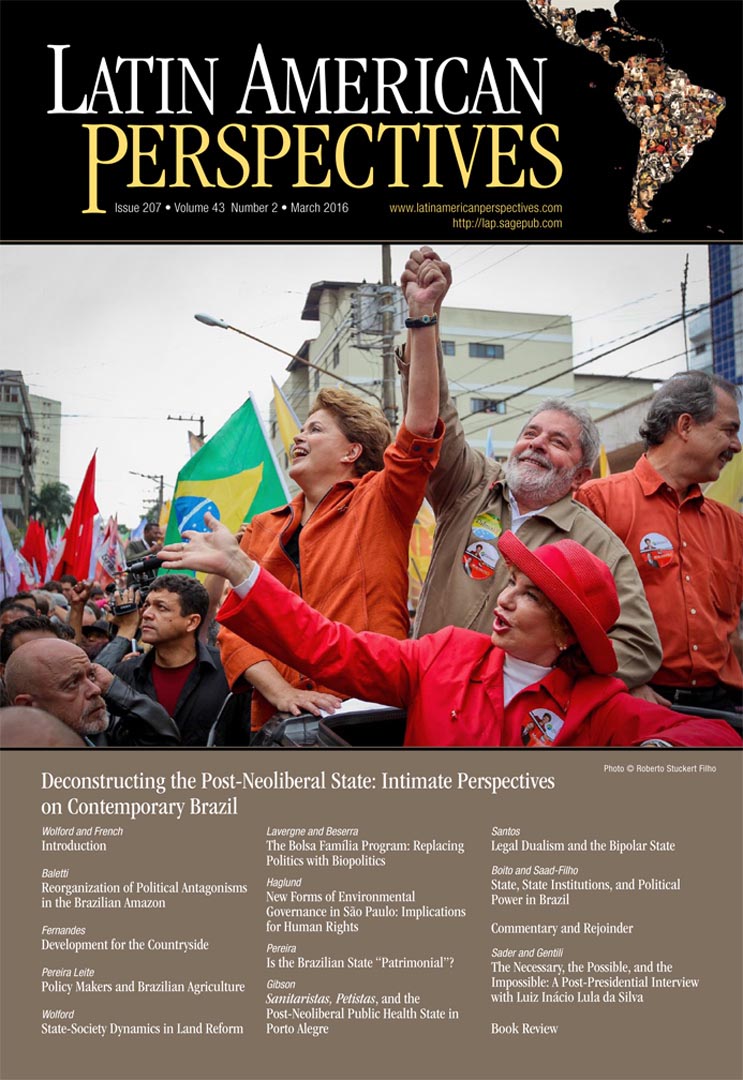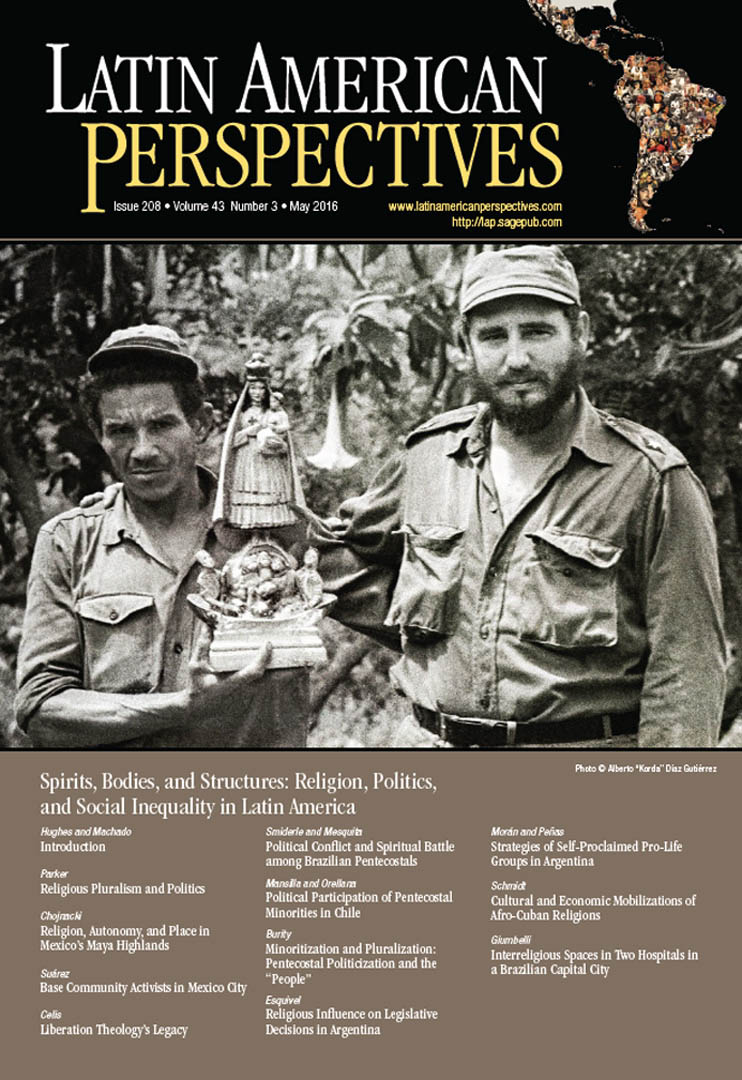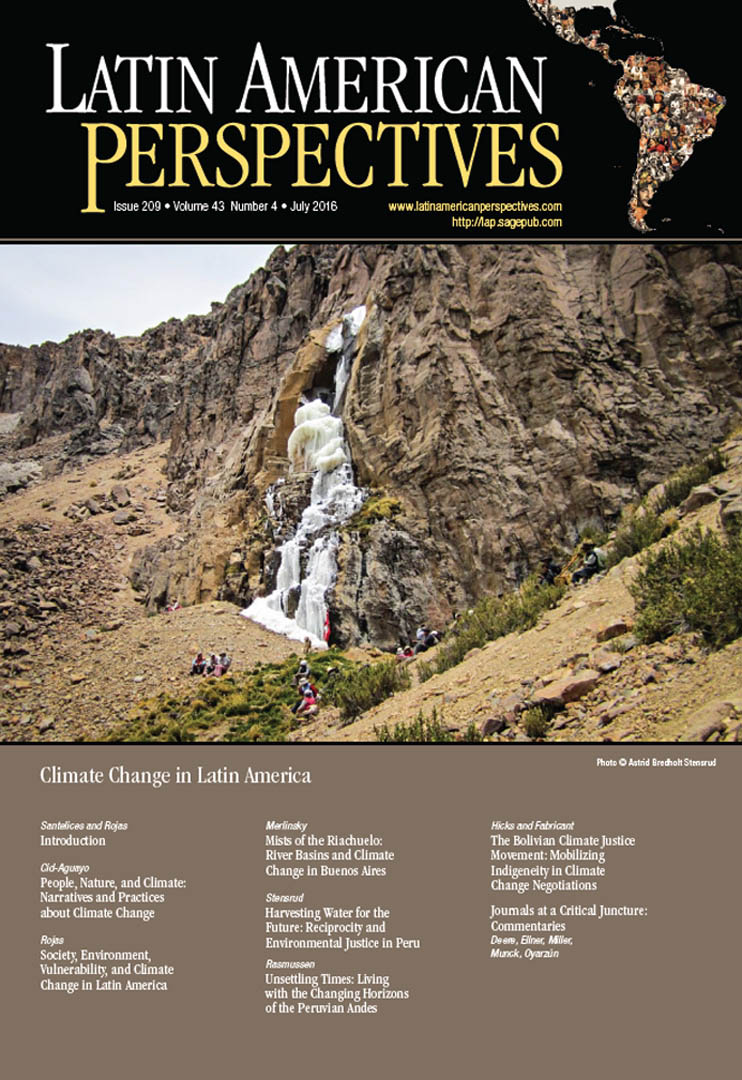The Nature of the PT Governments: A Variety of Neoliberalism? Part 2
March 2020 Issue Editors: Alfredo Saad-Filho, Juan Grigera, and Ana Paula Colombi Part II of this issue discusses the nature, strengths, achievements, contradictions, and limitations of the administrations led by the PT in federal government, questioning whether they can be characterized as a variety of neoliberalism. Besides macroeconomic policies and political alliances, this volume directs its attention to specific aspects of the PT policies. This includes foreign policy, Brazil’s external economic constraint, and the government’s regional, distributive, social and labor market policies; this volume also traces the emerging forms of collective action and the new forms of resistance of the working class. TABLE OF CONTENTS | PURCHASE THIS ISSUE


